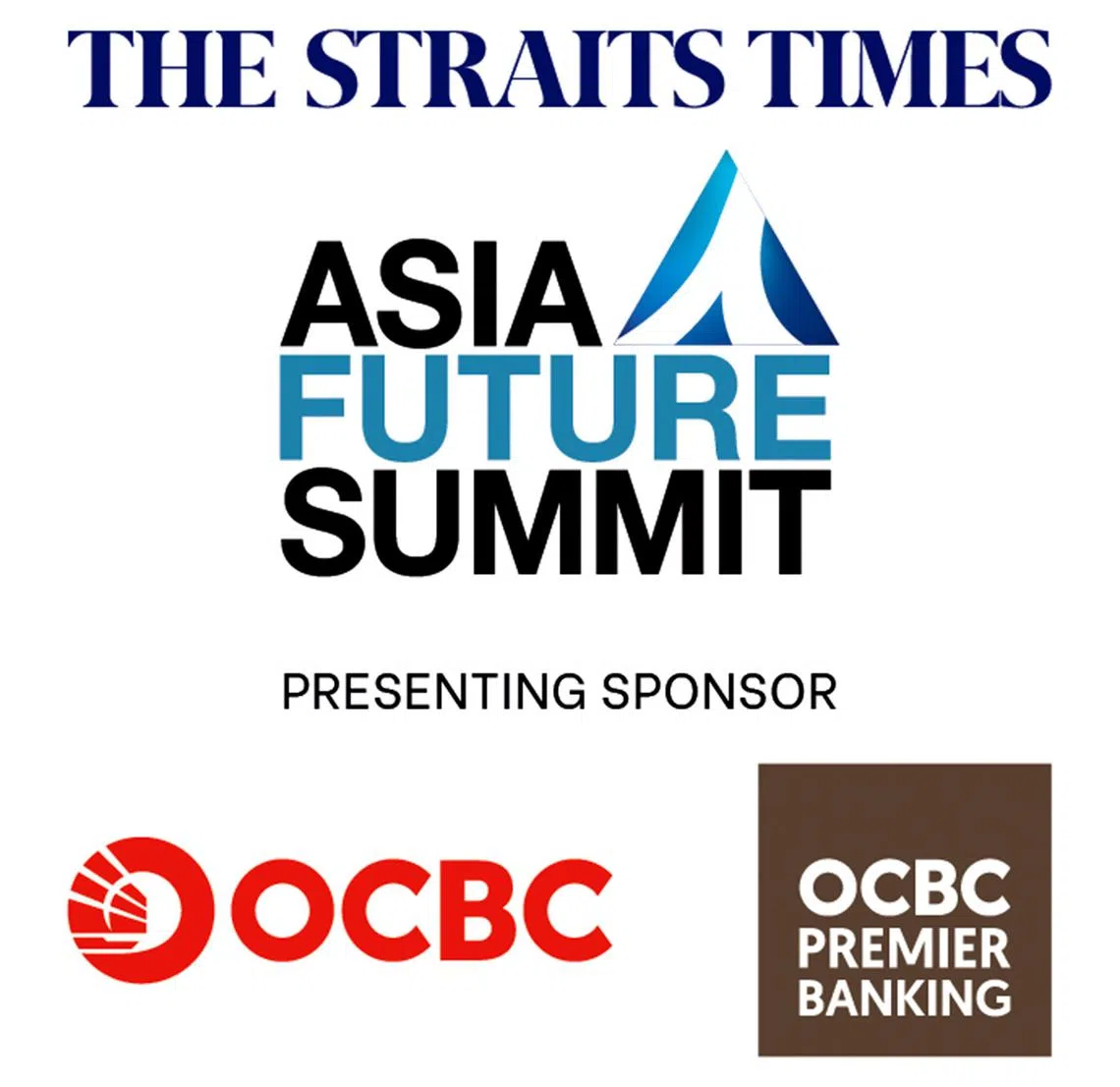‘Don’t bet against the US’: Chee Hong Tat on the American economy
Sign up now: Get ST's newsletters delivered to your inbox

Transport Minister Chee Hong Tat (right) speaking at a fireside chat moderated by ST editor Jaime Ho at the Asia Future Summit on Nov 12.
ST PHOTO: GAVIN FOO
SINGAPORE – The United States economy will likely remain “very formidable”, said Transport Minister Chee Hong Tat, despite worries about a volatile Trump presidency
“Don’t bet against the US,” Mr Chee, who is also Second Minister for Finance, told a forum organised by The Straits Times on Nov 12, as he reflected on the implications of President-elect Donald Trump’s win
Given access to global talent, enterprising companies and a culture of always wanting to “make tomorrow better”, the US economy will likely remain “very formidable”, he said.
Speaking at a fireside chat moderated by ST editor Jaime Ho at the ST Asia Future Summit held at Andaz Singapore, Mr Chee gave his take on the long-term prospects of the economy.
“What (Trump) is against is illegal immigrants, but he is not stopping the inflow of talent from around the world... That policy will allow the US to remain innovative and competitive,” Mr Chee said. Meanwhile, US companies are stepping up investments overseas, including in Singapore, and may become new engines of growth.
Regardless, it is still early days and one should wait and see if campaign statements will be recalibrated, he added in a reference to rising fears of Trump’s pledge to hike tariffs
Mr Chee also tackled worries that Trump’s return to the White House would herald greater US isolationism.
There is concern that America may turn more inward, rather than see its role as the world leader, which has maintained global peace and stability, and allowed other countries to grow and prosper, he said.
“This is not just doing charity, America will also benefit,” he added.
Beyond defence and security cooperation, however, Mr Chee urged the US to remain economically engaged in Asia through trade, investments and economic development.
Strategic competition between the No. 1 and No. 2 economies
“It’s not binary. You can have a different response on one or two issues; in some areas where the interests may align, even competitors can work together,” he said.
Singapore and the US also have common interests. The US has enjoyed a trade surplus with Singapore since 2004, and nearly 6,000 US companies are based in the Republic.
Mr Chee said that while Singapore might not agree with the US or China on every issue, the Republic welcomes American and Chinese companies to set up regional hubs in Singapore.
“What I’m hoping is that Singapore can remain friends with both the US and China,” he said.
Asked what Singapore can do amid growing dissatisfaction with the global trading system and its multilateral rules, Mr Chee said that since there is no feasible alternative to the global economic order, it must be tweaked and improved.
Countries, meanwhile, must ensure that global trade can translate into better lives for their people.
The Singapore Government’s approach has been to grow the economic pie and invest in skills upgrading for Singaporeans so that sectors and workers falling behind are not left to fend for themselves.
Turning to domestic politics and asked by Mr Ho if political leaders in Singapore today still have the bandwidth to focus on foreign policy, amid a contested political environment and acute domestic concerns, Mr Chee replied: “Diplomacy starts at home.”
He said that the Republic will need to invest more time and effort in explaining to its people the reasons for taking certain positions.
“If internally we can’t even agree, how do we then put forth a united position with other countries?” he said.
If Singapore does not handle our external environment effectively, the country’s ability to manoeuvre economically as a hub will shrink. This will eventually affect the livelihoods and lives of Singaporeans, he emphasised.
Mr Chee had earlier reiterated that Singapore’s approach to foreign policy and diplomacy is to always put the country’s interests first, uphold fundamental principles such as the rule of law, territorial integrity and the multilateral world order, and be prepared to speak up, or even disagree, to protect our interests.
Singapore also wants to work with as many friends and partners around the world as possible, he said.
Organised under the umbrella of SPH Media’s Asia Future Summit 2024, the ST forum is the third and last edition of the series after editions by Lianhe Zaobao and The Business Times earlier in 2024.
OCBC was the presenting sponsor of the event.

STAFS24 - ST Asia Future Summit 2024 (AFS24) Composite Logo Byline: ST Credits: ST Source: ST Condition of use: SPH use ST News folder
The Straits Times


